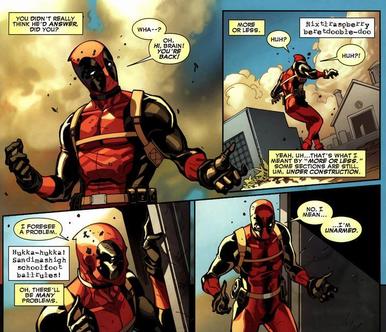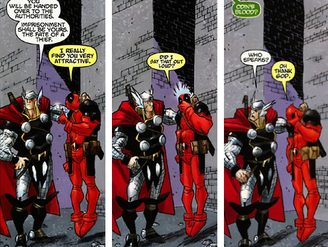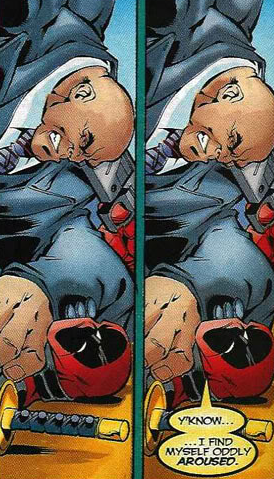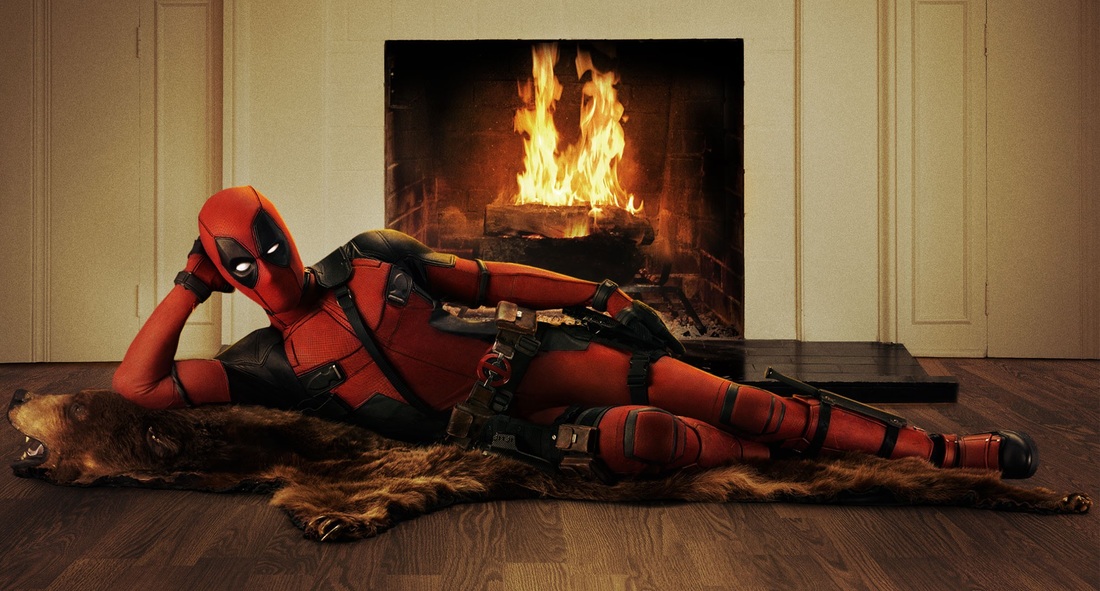"The satire, constant self-mockery, and surprisingly well-written dialogue were breaths of fresh air that catapulted Deadpool past the audience’s expectations."- Gabriela Shaffer
Deadpool, a hilarious and unique antihero that comic book lovers have adored since 1991, finally arrived to theatres February 12th! Many of the mouthy Merc’s fans were worried that the movie would be a repeat of the disastrous Deadpool portrayal in 2009’s X-men Origins Wolverine. Instead, Deadpool was true to its origins, uniquely made, and filled with the dirty humor that his fans have come to expect. The satire, constant self-mockery, and surprisingly well-written dialogue were breaths of fresh air that catapulted Deadpool past the audience’s expectations. Even my superhero-hating mom was impressed!

Deadpool was surprisingly canonical though a couple of details were changed, probably to keep from overwhelming the members of the audience who had not read the comics. One of the things that stood out the most to me, as a longtime Deadpool fan, was the lack of focus on Deadpool’s mental state. While a few fellow fans have pointed out parts of the movie that hinted at Deadpool’s instability, the fact that it wasn’t properly addressed was irking. Canonically, Deadpool has schizophrenia, among other problems, but the movie hardly discussed these aspects of his personality. In fact, I felt that the writers were using Deadpool’s humor as a way to cover up his mental illness at some points. While this is a detail that only comic book lovers will catch, I still found it upsetting since these are such important parts of Wade Wilson’s character.

Before the movie was released, director Tim Miller came forward and stated “Pansexual! I want that quoted. Pansexual Deadpool.” Deadpool’s sexuality has always been a bit of a controversy amongst fans and many inner-fandom fights have been started trying to attack or defend queer Deadpool. As a member of and activist for the queer community, I have always been thrilled with the idea. Representation is incredibly important for marginalized groups and discovering that Deadpool was going to be queer in the movie was exciting for many LGBTQIA+ fans. With this being said, I was disappointed with the way in which Deadpool’s sexuality was addressed in the movie.

Similarly to how his mental illness was displayed, Deadpool’s sexual orientation was never mentioned, and any hint of it seemed to be covered by humor. Deadpool is only shown with a female lover throughout the movie and a couple of the comments that he makes come across as a bit heteronormative. It would have been refreshing for the main couple to be same-sex and would have drawn even more viewers. Having a main queer relationship, especially two men, is original in any blockbuster film but especially one about a superhero. Comics have been marketed to straight men since their creation and has relied on many disappointing tropes, including but not limited to: oversexualized female characters, unrealistic body proportions, and the damsel in distress. Deadpool had the opportunity to go above and beyond in their portrayal of such a unique superhero. Instead, the movie goes for the generic hetero narrative that ends with the girl needing to be saved—which comic book fans have seen many times before this (see: Spiderman, Iron Man 3, The Dark Knight, to name a few.)
With all this being said, this movie still surpassed my expectations and I thoroughly enjoyed it. The humor was surprising and unique, Deadpool was an original and entertaining protagonist, and the action was incredibly well choreographed.



